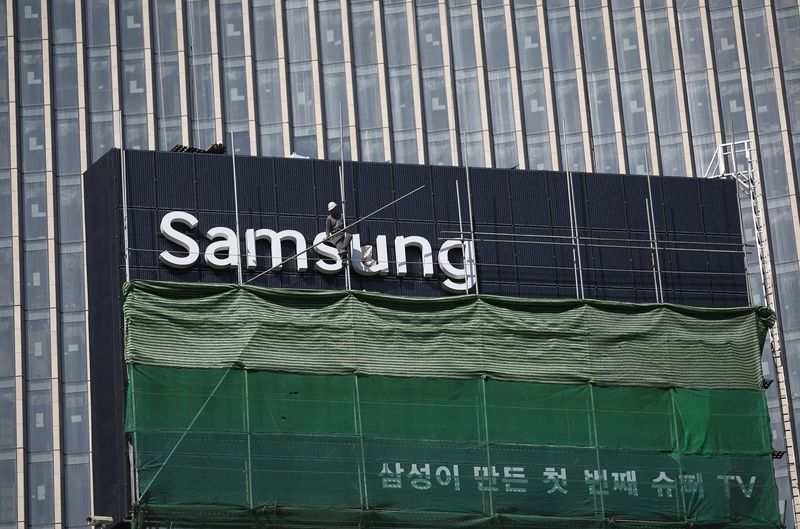Investing.com -- Samsung Electronics Co Ltd (KS:005930) logged a sharp decline in its first-quarter profit on Thursday, driven largely by a loss in its semiconductor business as global chip demand dried up, although the South Korean conglomerate expects a recovery in the second half of the year.
Samsung’s operating profit for the three months to March 31 fell 95% to 640 billion won ($1 = 1,340.69 won), while revenue fell 18% to 63.75 trillion won.
The sharp drop in profit was largely driven by a record loss in Samsung’s semiconductor business, which logged an operating loss of 4.58T won, compared to a profit of 8.45T won last year. The firm cited weak demand in the personal computing market, as well as slowing orders from its biggest customers.
But demand is expected to recover in the second half of the year, amid resurgent investment in technology infrastructure, and as mobile phones and PC component sales pick up. A drop in customer inventories is also expected to help prop up demand in the second half of the year, Samsung (LON:0593xq) said.
Revenue during the quarter was propped up largely by strong mobile phone sales, with Samsung citing a “successful” launch for its Galaxy S23 series. Samsung’s mobile business logged a profit of 3.94T during the quarter, up slightly from the same period last year.
But its semiconductor division is by far Samsung’s largest moneymaker, and is still expected to contend with sluggish demand in the second quarter.
Samsung had cut chip production earlier this month, in line with similar moves by its global peers amid waning demand.
The firm invested 9.8T won in capital expenditures for its chip production during the quarter, as it still seeks to set up new production units.
Worsening economic conditions across the globe, coupled with weakening sentiment towards technology weighed heavily on chip demand over the past year. Recently, Taiwan Semiconductor Manufacturing Co (TW:2330), the world’s largest chipmaker, logged a sharp quarterly drop in revenue and profit, as the firm warned of slowing demand.
Samsung's shares rose 0.2%, with the broader KOSPI index up by a similar margin.
